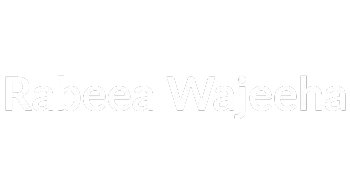Marquee Real Estate Voice AI Agent
Designing a Voice AI Agent to Qualify Real Estate Leads & Book Appointments
Role: Senior Product Designer
Client: The Marquee Team (Real Estate)
Tools: Figma, Miro, Retell AI, Go High Level, Kixie, Axieon.ai, Notion
Problem Space
The Marquee Team, a high-performing real estate group, was overwhelmed by high lead volume and low follow-up efficiency. Despite a solid marketing funnel, they were losing qualified prospects due to slow response times, missed inbound calls, and inconsistent outbound outreach.
They needed a solution that could:
Respond instantly to inbound calls with relevant information
Initiate outbound calls to cold and warm leads
Qualify leads intelligently based on buying/selling criteria
Book appointments directly on agent calendars
Feel natural and human-like not robotic
My role was to design the end-to-end Voice AI experience, from system logic to conversational UX, ensuring a seamless and intuitive flow for both callers and internal users.
Discovery & Research
User Personas
Lead Agents: Busy, mobile-first, need high-quality appointments only
Lead Coordinators: Need visibility into lead quality and hand-offs
Prospects: Expect fast, friendly, and knowledgeable interactions
Constraints
Voice AI must sound human, not mechanical
Needs to handle unknown caller intents gracefully
Conversation flow must feel personalized, not script-driven
Output must sync to Go High Level with full transcript and disposition
Design Approach
1. Conversation Flow Mapping
I started with a whiteboard session in Miro to map possible user intents:
Inbound FAQ → Answer and offer appointment
Outbound follow-up → Qualify or disqualify
Dead-end inputs → Offer live transfer or callback
2. Script Logic + Branching
Using conditional logic, I built dynamic trees:
Buyer/Seller detection
Timeline identification (e.g., “just browsing” vs “ready in 30 days”)
Qualification tiers (A, B, C)
Example Flow
AI: “Hi, thanks for reaching out to The Marquee Team. Are you looking to buy or sell?”
→ [User says “buy”]
AI: “Great! Have you already spoken to a lender or are you just exploring options?”
3. Voice UX Design
I designed all AI prompts in a tone that matched the brand: warm, confident, and efficient — like their top-performing agent. Every response was written with:
Natural pauses
Soft confidence
Non-linear recovery phrases (e.g., “No worries, let me try that again…”)
4. Call Interface Output
Each call produced:
A full transcript
CRM tags (Qualified/Disqualified, Buyer/Seller, Timeline)
Appointment link or call disposition
I ensured every touchpoint was intuitive and required minimal training for the team.
Results (First 30 Days)
Avg. Lead Response Time: was 47 minutes and reduced to 3.6 seconds
Qualified Leads: increased from130 to 267
Booked Appointments: increased from 38 to 92
Missed Calls: reduced from 76% to 12%
Outcomes
Improved Lead Conversion: Higher quality conversations led to more appointments.
Freed up Agent Time: Reduced manual follow-up load by 30+ hours/week.
Consistent Brand Voice: Even at scale, every caller heard the same confident tone.
Scalable Foundation: The flow architecture I designed now supports multi-language and multi-listing logic.
Next Steps
Multilingual Expansion: We’re testing Spanish and French versions using the same conversational architecture.
Sentiment Tracking: Exploring real-time emotion detection to prioritize hot leads.
Voice Testing: Adding A/B testing to compare tone and script performance.
Conclusion
This project challenged me to bridge the world of product design and conversational AI. Designing for voice unlike web or app requires anticipating intent, errors, and expectations all in one breath. My goal was to create an experience that didn’t just "work" technically, but felt seamless, human, and brand-aligned.
Designing a machine to talk like a trusted team member? That’s the kind of design challenge I live for.








Testimonials
Unleash Your Business Brilliance.
Drive growth through thoughtful product design and strategic vision.
Copyright © 2025 - All Rights Reserved
